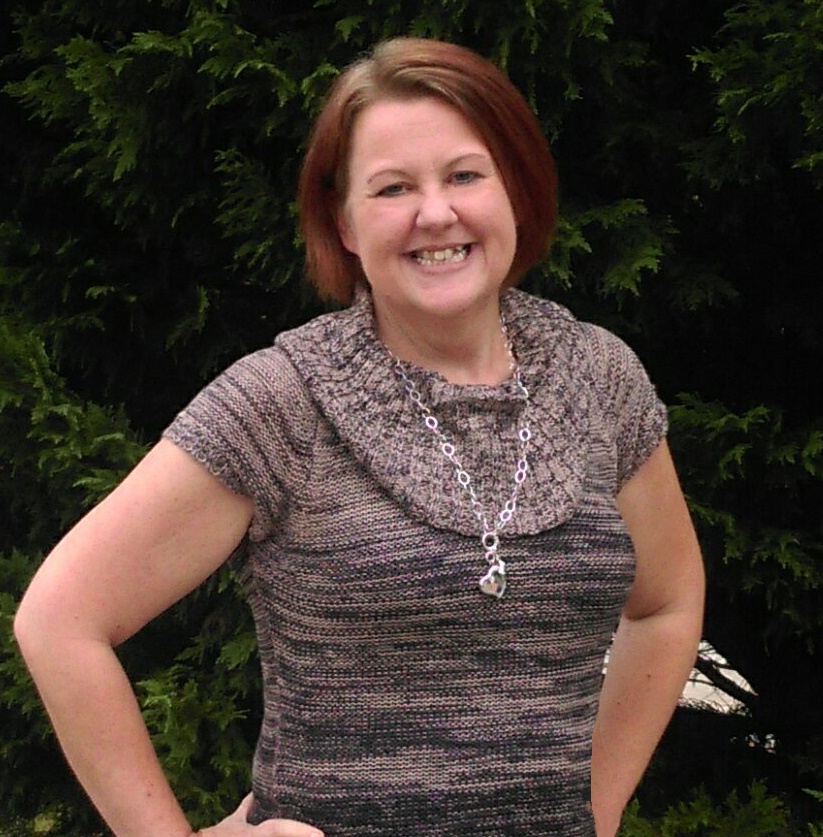4 Steps to Managing Shame and Guilt

Have you ever done something in your life that you wish you hadn't? Sure, you have. We all have. If someone says that they haven't, then I would like to meet them. Granted, we can say “everything I have done has made me the person I am today, so I don't regret anything,” and I think that's awesome, but still, there are those things we might have done differently at least.
"Guilt" is your conscience, what tells you that what you are doing is wrong and that you “know better.” Maybe you were 5 years old and stuck a piece of candy in your pocket at the grocery store. Maybe you broke something at your Aunt Judy's house and blamed it on your sister. Whatever it was, you felt guilt because you were the one that had performed the “action” or the “behavior.”
“Shame” is what you feel when you ignore your guilt and do the behavior or action anyway. Let's say that you took the candy from the store, and when you got home and started to eat it, your mom found out and was furious. She took you back to the store and made you apologize. That feeling you had, along with embarrassment, was shame. Shame makes you feel that you are a bad person, that internal dialogue that results in addressing your self-perception.
How Guilt and Shame Relate to Food Addiction
When related to our addiction to food, guilt and shame can come when we fall off the wagon after our surgery (in addiction, this is referred to as a “relapse”). Let's say we choose to eat a food that we know is not good for us after surgery. First we feel guilty for eating the food (the behavior), then we feel shame because we may perceive ourselves as a bad person, a failure, etc.
This kind of thinking, when not addressed effectively, can lead us down the path of ongoing negative self-talk that can cause repeated relapse due to feeling that we have failed ourselves. Think back to times where you may have not done so well on diets prior to surgery. Perhaps a “slip up” on the diet caused you to think “that's it, I screwed up. I might as well give up.” Sound familiar? That's addict thinking. One relapse and the addiction rears its head and we are back in full-force.
Reframing the Thoughts
So, how do we reframe that “shame” and “guilt” so that a possible relapse doesn't derail our progress?
-
Own up to the mistake – don't hide from the fact that we made a mistake. We all have slip ups from time to time. Take responsibility for it. This is our new lifestyle and we signed up for this for a reason. Accept the consequences, if there are any, and accept them with grace. We are responsible adults, and we have to act as such. Be proud of your accomplishments so far and not ashamed of a mistake that can be repaired.
-
Fix the mistake – What went wrong? Was there a stress that overwhelmed you? Were you in a situation that put you around a food that was just too tempting? What can you do differently to prevent this particular situation from happening again? Figure out what the cause was that lead to the relapse and how to make it different. If you recognize the situation and change it, and it still happens, then the situation was not the issue. It may be time to dig a little deeper into yourself and see if you have truly identified the mistake.
-
Ask forgiveness – Surprised by this one? There are others that are probably on this journey with you. Perhaps your support people are aware that you slipped and have verbalized or otherwise made you aware of their disappointment. As part of owning up to the mistake, ask forgiveness and ask for their help. Taking the time to reach out to them and acknowledge that you know they are there will go a long way to keep you on track.
-
Forgive yourself – above all, DO THIS! - seriously, this is most important. You must forgive yourself for this fall. It's life. We have to get up and move forward. Was it wrong? Yep. Do we feel bad about it? Sure. Did it make us put back on 50 pounds that we lost? Nope. Get up, wipe your eyes, keep moving.
Shame and guilt don't have to be ongoing reminders of our past. Using the steps above, we can grow in many areas of our lives, not just in recovery from our bariatric surgery and our love affair with food. Try these steps with other areas in your life in which you may be feeling shame or guilt.
I agree that shame and guilt can be major players with our sense of self perception. Not every stray from our diet should be considered a full relapse. Minor lapses can and will happen. To believe they won't is to place a need for perfection in compliance can place an impossible standard of perfection as the only acceptable level of compliance. None of is is perfect. That's reality. That less than perfect belief can set some people up for failure.
It is a double edge sword, because a lapse can become the proverbial slippery slope towards a return to full addictive behaviors. Forgiving yourself for less than perfect behaviors seems a healthier approach towards addiction recovery than a demand to oneself for perfect compliance.
Very good post with lots of salient points that we all need to think about regularly.
Thank you, Mountaingal! I'm glad you found it useful!
I agree that shame and guilt can be major players with our sense of self perception. Not every stray from our diet should be considered a full relapse. Minor lapses can and will happen. To believe they won't is to place a need for perfection in compliance can place an impossible standard of perfection as the only acceptable level of compliance. None of is is perfect. That's reality. That less than perfect belief can set some people up for failure.
It is a double edge sword, because a lapse can become the proverbial slippery slope towards a return to full addictive behaviors. Forgiving yourself for less than perfect behaviors seems a healthier approach towards addiction recovery than a demand to oneself for perfect compliance.
Carole,
Thank you so much for your reply! I was going to pull specific quotes from it for my response, but I realized I was keeping more of it than I was going to leave out, so I just quoted the whole thing!
I would have responded sooner, but your response really made me think. I had to take a step back and rethink the way I used the word "relapse" in my article. Being that I also do a lot of work with folks who are in recovery from substance abuse, the term "relapse" is often used because in substance abuse, ANY use after entering recovery is considered a relapse. However, after I read your comment, it made me rethink my use of the word as it applies to us. Being that we cannot completely do without our "drug of choice" so-to-speak, I think that you are correct. Using the word "lapse" as in "lapse in judgement" makes much more sense. A full relapse would be more appropriate if we completely chose to stop following the bariatric lifestyle completely rather than just made a one time poor choice.
That being said, I have changed the wording in the article to reflect the correction. Thank you so much for your feedback! That's why we all have to help each other on this journey. Even at almost 11 years out, I love knowing that there is still more to learn!
Good article, highly reflective of one of the best TED talks ever: https://www.ted.com/talks/brene_brown_listening_to_shame?language=en
Vulnerability is courage. That's awesome!
Your blog also reminds me of the Mary Lambert song "secrets". Now that I own the fact that I am a flawed human being, own my surgery, etc it is so freeing.
Your blog also reminds me of the Mary Lambert song "secrets". Now that I own the fact that I am a flawed human being, own my surgery, etc it is so freeing.
FocusOnMeNow,
It's so hard to take ownership of the fact that we aren't perfect and that we are sometimes going to make mistakes. I'm glad that you've gotten to that point - it's definitely freeing, as you said!







Mountaingal 322
Posted
Very good post with lots of salient points that we all need to think about regularly.
Share this comment
Link to comment
Share on other sites